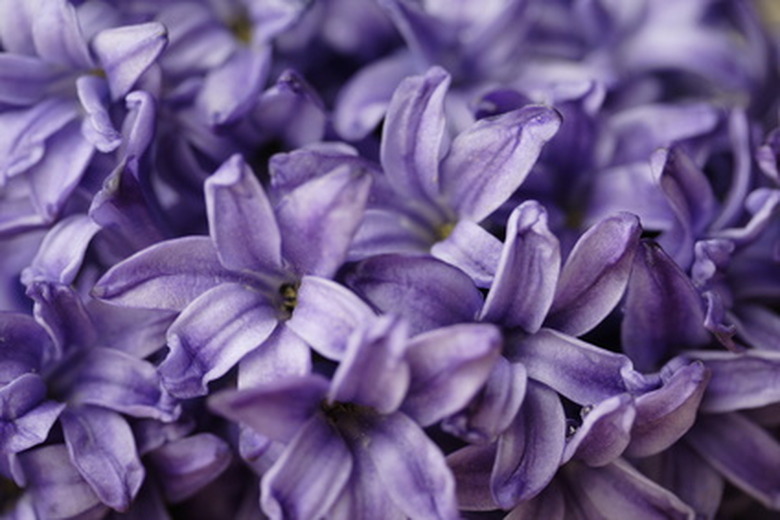Adaptations Of The Water Hyacinth
One of the hardiest, invasive aquatic plants known today, the water hyacinth is a rapidly reproducing flower that is capable of surviving even highly polluted environments. Although the plant is known to aid in the cleaning of environmental pollutants, it is also nearly impossible to remove once it has spread due to a variety of adaptations, making the plant a possible threat towards other organisms.
Survival
The water hyacinth mainly reproduces through stolons. This adaptation allows for a single plant to produce approximately 3,000 new plants in as little as 50 days or cover 600 square meters in as little as a year. Also, the water hyacinth seeds are adapted to be dispersed by birds and can remain viable for up to 20 years.
The water hyacinth has other adaptations that allow it to grow and spread rapidly in freshwater. Its swollen leaf stalks are hollow and filled with air. This allows it to be the only large aquatic herb that floats unattached from the bottom of its water source. The roots remain underwater in a thick mat, allowing the plant to obtain enough sunlight for photosynthetic processes.
- One of the hardiest, invasive aquatic plants known today, the water hyacinth is a rapidly reproducing flower that is capable of surviving even highly polluted environments.
They have also adapted to withstand extreme temperatures, high pH levels and even toxic water. They are best grown in still or slow-moving water.
Benefits
Water hyacinths are extremely tolerant of heavy metals and can contain large amounts of them. This makes the plant a possible resource for bio-cleaning industrial waste. They have also been well known to remove toxic materials such as cyanide from water. Finally, because the roots of the water hyacinth are available sites for bacterial communities, the plant is often observed as a tool in nitrification in waste water treatment cells.
Dangers
Due to its fast growth rates, water hyacinth can become a dangerous weed outside its native habitat. The plants grow in such a dense area that they can disrupt all life in an environment. They can block waterways and prevent irrigation. They have been known to destroy rice fields and deprive other aquatic life of sunlight by shady their water. As they decay they increase the levels of nutrients in the water, reducing oxygen and increasing algae growth.
- They have also adapted to withstand extreme temperatures, high pH levels and even toxic water.
- They have been known to destroy rice fields and deprive other aquatic life of sunlight by shady their water.
They are extremely difficult to destroy. Although arsenic has been known to partially clear the weeds, it completely poisons the local ecosystem. Water hyacinths are also adapted to reproduce rapidly from small fragments, making fire and explosives ineffective. The only known effective measure of control is by bringing in biological predators into the environment, such as manatees and the Chinese grass carp.
References
- "Water Hyacinth (Aquatic Plant Studies);" Brij Gopal; 1987
